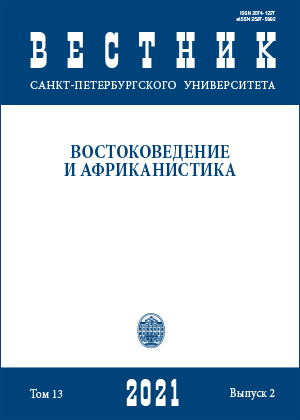The Image of Authority in Basma Abd al-Aziz’s Dystopian Novel The Queue
DOI:
https://doi.org/10.21638/spbu13.2021.201Abstract
The article presents an overview of the new dystopia genre in Arabic literature as well as the main reasons and prerequisites for its appearance. The interest of Arab authors in the newly discovered genre of the dystopian novel has grown markedly, which is primarily due to serious political, economic and social changes affecting the region. The situation in some Arab countries offers many avenues in which society can develop, and literature was the first to respond to this. Egypt has become one of the centers of global change that has affected the Middle East. Young Egyptian intellectuals tend to soberly assess the situation that has developed since the Arab Spring and writers have offered their own vision of the situation in the country. As an example of a modern dystopia, the novel The Queue by Basma Abd al-Aziz was chosen. The Queue does not have a traditional dystopian oppositional character. However, of the significant images of the novel to which the writer draws attention is the image of authority, which is impersonal and inaccessible to the common people. There is no mention of the name of the country where the events of The Queue unfold, but the reader easily recognizes Egypt. In the study a comprehensive approach was used, as well as cultural and sociological methods of analysis and interviews.
Keywords:
modern Arabic literature, novel, dystopia, authority, Egypt
Downloads
References
Downloads
Published
How to Cite
Issue
Section
License
Articles of "Vestnik of Saint Petersburg University. Asian and African Studies" are open access distributed under the terms of the License Agreement with Saint Petersburg State University, which permits to the authors unrestricted distribution and self-archiving free of charge.





